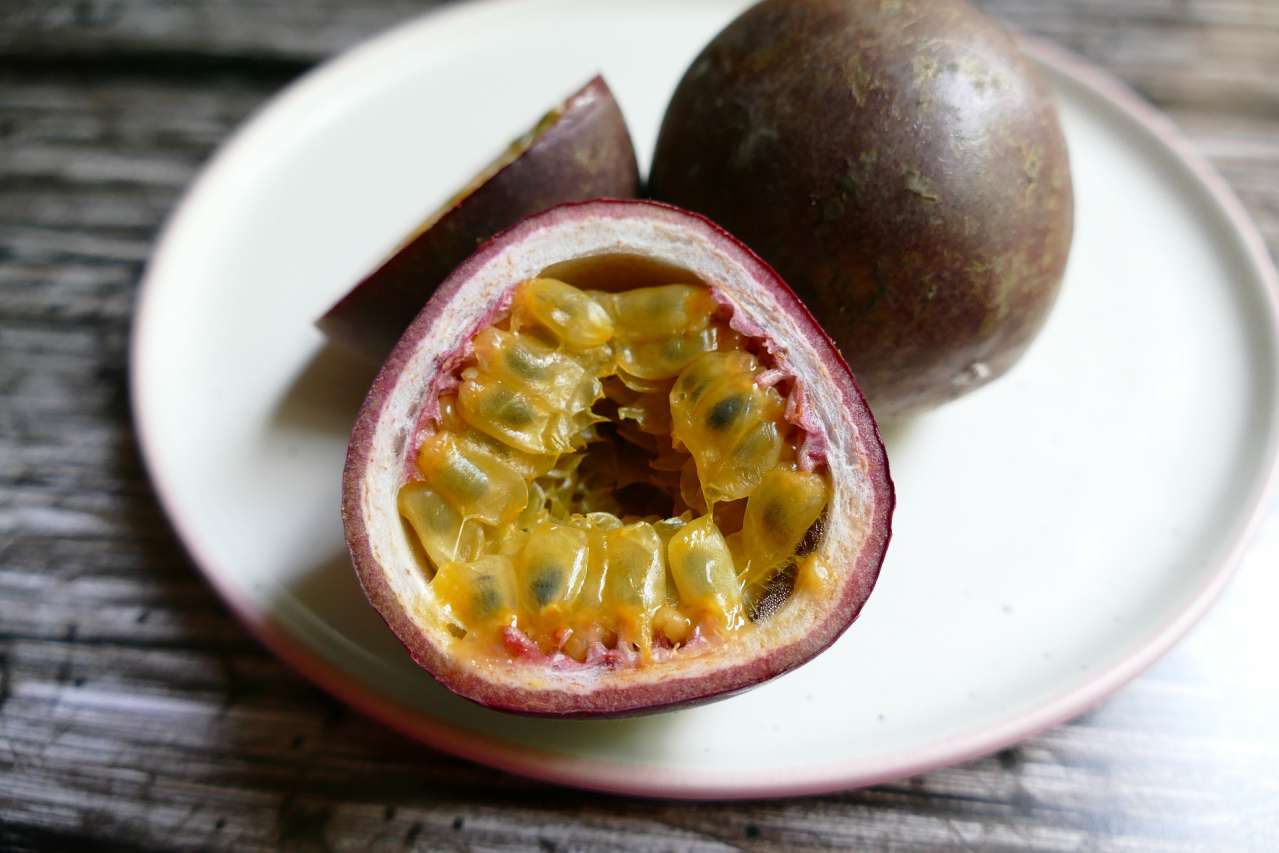Passion Fruit: Health Benefits
Passion fruit tastes sweet and sour, reminiscent of gooseberries, kiwi, and some notice notes of peach and apricot in it.
Passion fruit is native to Brazil, in whose tropical forests it has been growing for a very long time.
What are the benefits of passion fruit
It has a calming effect, which is necessary for the nervous system, is useful for stress, fatigue, and normalizes sleep; vitamin A has a beneficial effect on the beauty, elasticity and healthy appearance of the skin, the strength of nails and hair; has a diuretic effect, removes excess fluid from the body.
The fiber, potassium, and antioxidants in passion fruit are good for heart health.
They help lower cholesterol, regulate blood pressure and reduce the risk of heart disease.

What should a ripe passion fruit look like
Ripe fruits have a dark skin, yellow-orange or red-violet, depending on the variety.
The skin is soft to the touch, wrinkled, sometimes even with small cracks.
Too pale a color indicates that it is too early to eat passion fruit.
Brown skin with deep dents and cracks is a sign of overripeness.
How long can passion fruit be stored
Unripe passion fruit can ripen in the refrigerator for 5-8 days, ripe ones can be stored for no more than 2 days.
Store them in paper packaging. And passion fruit puree can be frozen.
